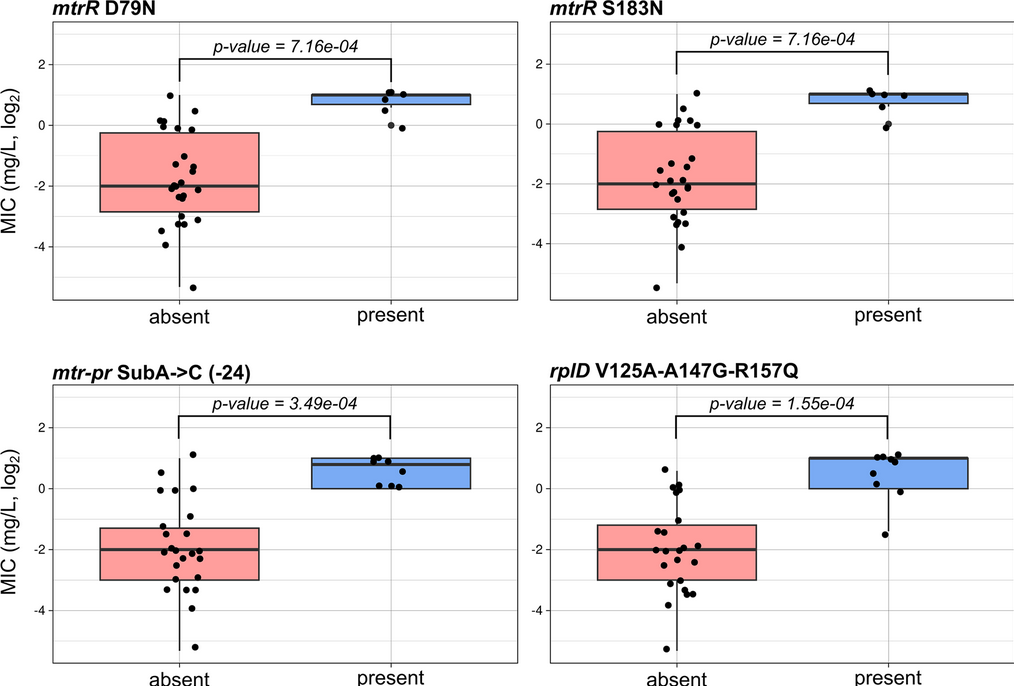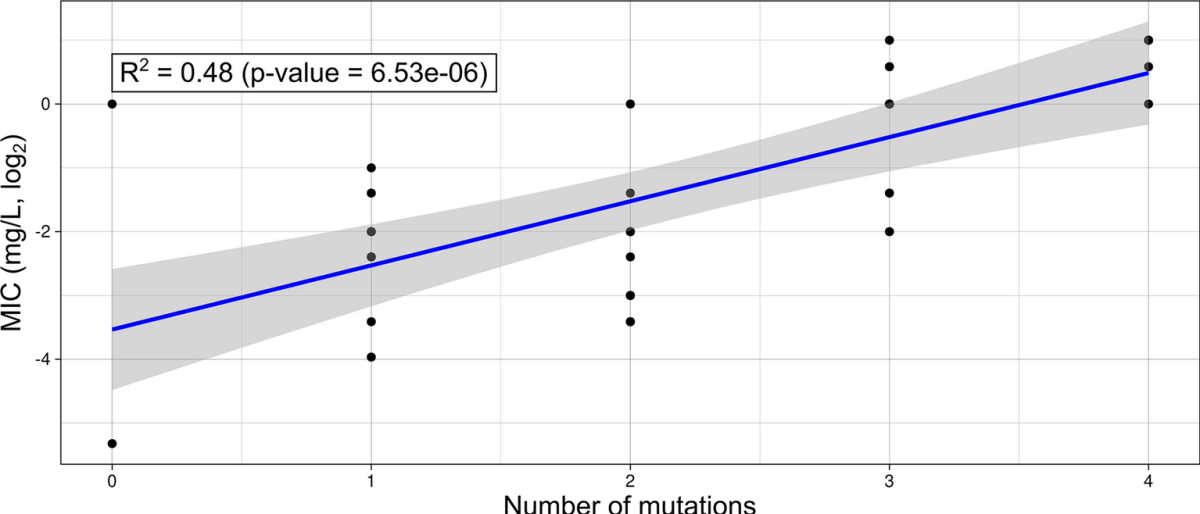Impact of mutations in the mtrR, rpdlVD and rrl genes on azithromycin resistance in Neisseria gonorrhoeae
Understanding azithromycin resistance in Neisseria gonorrhoeae
Sexually transmitted infections (STIs) remain a pressing global health challenge, particularly due to the emergence of antibiotic-resistant pathogens. Neisseria gonorrhoeae, the bacterium responsible for gonorrhea, has shown alarming resistance to treatments like azithromycin, a commonly used antibiotic. Understanding the genetic mechanisms behind this resistance is essential for developing new strategies to combat this public health threat. We investigated specific genetic mutations in N. gonorrhoeae strains isolated over three years in a Swiss university hospital, shedding light on how these mutations contribute to azithromycin resistance.



Over a three-year period, 34 N. gonorrhoeae isolates were analyzed for their resistance to azithromycin. Genetic sequencing was performed on eight genes previously associated with resistance. The study identified several key mutations, including the C2597T mutation in the rrl gene, which contributes to medium-level resistance, and mutations in the mtrR promoter and the rplD gene, which also play significant roles. These findings demonstrate that resistance often arises from a combination of mutations, which together increase the bacterium's minimum inhibitory concentration (MIC) for azithromycin. Notably, the mutations in the mtrR promoter enhance efflux pump activity, reducing the antibiotic's efficacy.
This highlights the multifaceted nature of azithromycin resistance in N. gonorrhoeae. By identifying and confirming the impact of specific genetic mutations, this study provides valuable insights for clinicians and researchers aiming to mitigate the spread of drug-resistant gonorrhea. The findings emphasize the need for ongoing surveillance, innovative treatment approaches, and public health interventions to address this growing threat.
For more information, see the published paper.

